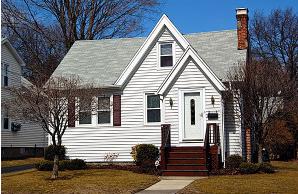
The Pros and Cons of Buying an Old House
realtor.com | 2014-05-23 17:34

But that personality could come with a steep price in upkeep and renovations to meet the needs of your family and your modern tastes. How do you decide if an older home is worth it? Consider our list of pros and cons:
Con: Outdated building code compliance and other maintenance
Homes with old heating systems or inefficient plumbing can be in such bad shape that they do not comply with modern building codes. It is a good idea to take a careful look at each system in an older home (heating, wiring, plumbing, air conditioning, etc.) to make sure they are modern, efficient and safe. Replacing these systems can be expensive. Chimneys may need realignment or need to be fitted with draft excluders. Older windows may need to be replaced.
Pro: Location, location, location
Older homes are often built closer to the center of town, making it easy to walk to local shops, schools and other amenities. If you happen to find an old house out of town, it could still have local shops, schools and other amenities within walking distance.
Con: Lack of storage
People tend to buy and own more items now than ever before, so storage in old houses may present an issue. An older home may lack modern closet measurements. They often have sloped floors and imperfect edges, so installing cupboards and shelves may require a professional, which could be expensive. You can do things, however, to make the house more appealing to a younger buyer who likely has more storage needs.
Pro: Cost
You will probably pay less for an older home. This depends on condition and location, but generally, a modern house of the same size and in the same area costs more than an older one.
Pro: Availability and furnishings
There’s no waiting for a developer’s finishing touches (or delayed schedule). You can move in immediately, barring any immediate renovation plans. When you buy a new build, you may have to wait a year or more to move into an empty home. Some buyers love the style of the previous owner and they can often strike a deal to keep furniture or accessories that they like. Buying a home with furnishings you like can be a real money saver.
Pro and Con: Eclectic neighborhoods
Moving into an old house in an old neighborhood can mean that you get an eclectic mix of neighbors. With a newly built block, every neighbor will have bought around the same time; but in an established neighborhood you could have neighbors who have lived in their homes for generations. Some parts of an old neighborhood may have undergone gentrification, while other parts may attract unsavory characters. Get to know a neighborhood before you buy.
Pro: A long-term investment (if upkeep isn’t too pricey)
Old houses are in limited supply. As some decay or are torn down, supply decreases even more. Yet, demand remains. When looking at an old house, take time to talk to people in the area with similar properties to see how much their homes have increased in value over the past decade.
Con: Roots, and we don’t mean metaphorically
Old houses often come with old trees—and root problems. Older, taller trees often have long, strong roots that grow in toward the foundations and plumbing systems beneath the home. Pipe replacement or foundation work can be expensive.
In sum, an older house can offer benefits—and character—that a modern home doesn’t have. But it’s worth taking extra time to educate yourself on the potential pitfalls and fully vet and inspect any older property you are considering.
Share this page



















